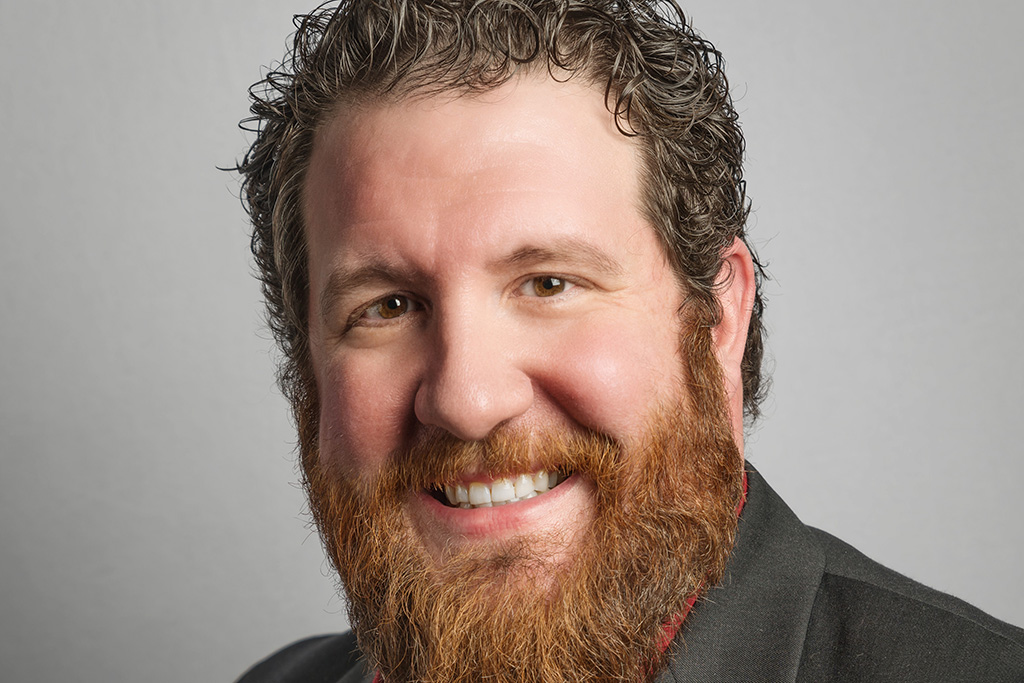
Daniel Kelly received a 2022 President’s Excellence in Engaged Scholarship Award for Excellence in Community Engaged Teaching.
Daniel Kelly is an assistant professor of science, technology, engineering and math (STEM) education in the Department of Curriculum and Instruction, housed in the College of Education at Texas Tech University. He is also the author of Falling Down: A Teenager's True Story of Redemption—proceeds from which he used to fund not-for-profits dedicated to helping those in need. The book chronicles Kelly's troubled youth and his family's attempts to help while highlighting that, much like youth, hell is only temporary.
Now, as the director of the STEM Explorers Project, Kelly educates at-risk youth in STEM fields and illuminates a path forward through college and career awareness. For his tireless efforts to improve the quality of life for underrepresented students – including those without homes or in foster care – Kelly has been recognized with a for Excellence in Community Engaged Teaching.
The President's Excellence in Engaged Scholarship Award recognizes faculty whose long-term project or initiative demonstrates a significant and sustained commitment to addressing a community need or larger social issue through active collaboration with community partners.
To learn more about the project and Kelly, we borrowed some of his time for a Q&A.
What is the STEM Explorers Project and how did it get started?
The STEM Explorers project was originally started in 2017 to provide informal STEM educational activities for children in foster care. STEM Explorers provided summer and day camps for these youth that included engineering, robotics, programming and electronics. Since then, STEM Explorers has expanded to include other populations of students which includes children and adults with disabilities, students with behavioral difficulties, students involved in criminal justice and students with severe emotional disturbances. STEM Explorers projects are always free to the participants and families which allows us to provide services to as many youths as possible.
What impact has the program had so far and what future impact do you hope for?
We have been able to provide educational opportunities and engagement to populations who rarely, if ever, are able to access equivalent programs. Through our free summer camps, we're able to provide week-long residential experiences to students who cannot afford to attend camps that can cost hundreds or thousands of dollars. Some of these students are not invited or able to attend programs because of behavioral, academic or mental health concerns, special needs, or lack of access or awareness. We also have provided programs to incarcerated youth and students who have been expelled from school. These groups are especially vulnerable to drop-out and recidivism. My hope is that we're able to continue to provide robust educational experiences for these students who desperately need it.
What does receiving the President's Excellence in Engaged Scholarship Award mean to you?
Receiving the award provides validation for a program we have been working hard to demonstrate the value of as a needed area in both teaching and research. I share credit for the award with my students and all the hard work they have done over the last several years. None of this would be possible without their hard work and dedication to the students we serve.
What rewards do you get from teaching?
I love watching my students grow into strong, or stronger, educators and more compassionate members of the community. Watching the personal and professional growth and development for each of my students provides an immense sense of pride for me as an educator. Knowing that the work I do with both current and future teachers will positively impact the lives and opportunities for generations of students continually provides motivation to be the best educator I can be.
What motivated you to pursue a career in academia?
That is too long a story to tell here but the short version is that I saw it as an opportunity to reach a larger audience and have greater influence within education. I never saw myself in academia, but I was fortunate to have a great mentor during my graduate work, as part of my teaching certification, and he encouraged me to pursue doctoral studies. I found my true passion in teaching future teachers and that passion continues today.
How has Texas Tech helped you advance your research and teaching?
Texas Tech provided the opportunity to advance the STEM Explorers through internal grant support and connections to the local community. The community engagement mission of the university is why I came to Texas Tech, and I continue to support that mission through this program. The support for service learning has helped me to grow as a community-engaged educator and pass those values along to my students.
